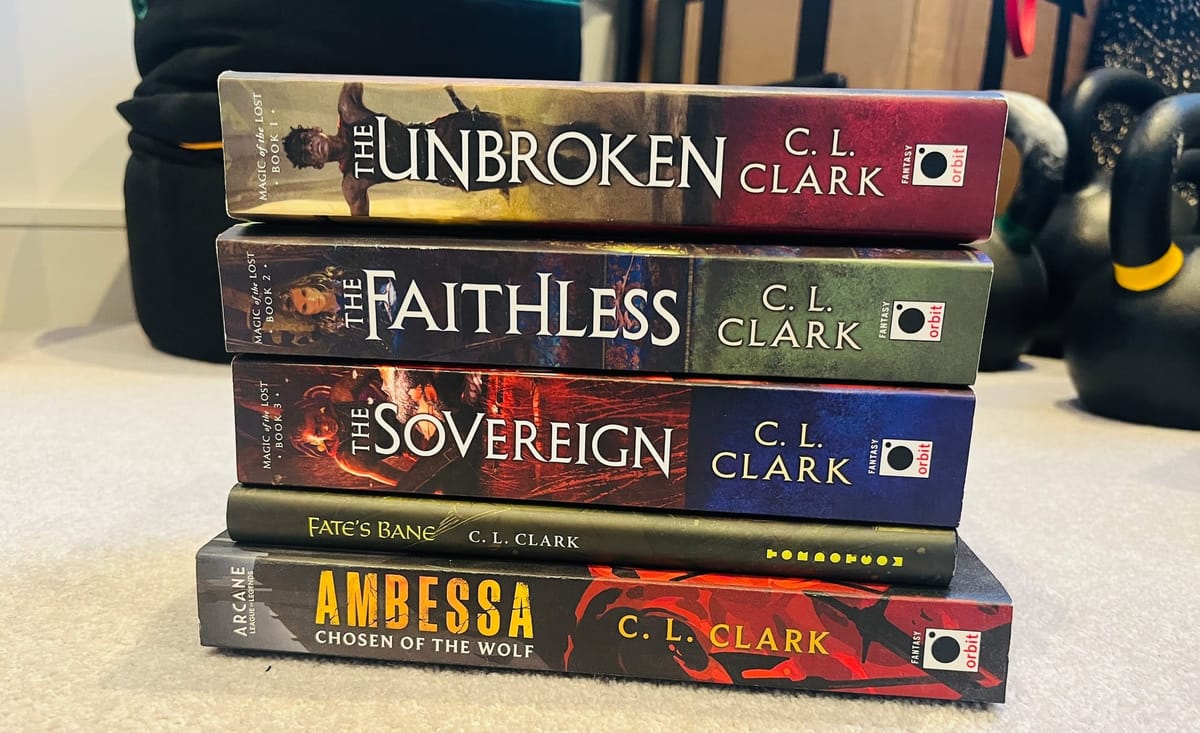Career…or craft?
Are they mutually exclusive?

At my launch party for The Sovereign last week, I did something that was perhaps a little controversial. Instead of talking about the art of what I was doing, I wanted to say thank you to everyone who had made it possible for me to make a career out of doing what I love: telling stories.
This led, however, to a comment from someone that it doesn’t do justice to what I do, calling it a job or career. That it is artisanal and unique to me, and that, like other artists, I should use the term “craft.” That “jobs” are means to an end and it’s not a job if I enjoy doing it.
The comment came from a well-meaning place, I think. However, it misses a few points.
It doesn’t account, for example, for the very real reality that is my life right now: if I don’t sell books, I don’t eat. This is my income. It doesn’t matter how much fun I have doing it—it pays the bills. This is why I gladly point out that it is my great privilege that this is my job. And that joy does not negate the stress that comes with running my own business as a freelancer/sole trader, the ups and downs of the industry, the project management, the accounting, the legal landscape (hello, AI lawsuits), and all the other unglamorous parts of the job.
But yes! It is more than a job to me, that much is true. I would do it even if I were not paid to do it, though my reach might be smaller. I’m glad that I’m able to touch enough people who find that my words are worth financial value to them. (We could write a whole other post on the value of stories and paying for books.)
Writing is a craft that I have dedicated most of my life to learning and practicing. I practice still, and intend to until I no longer can. Anyone who follows my writings here or has taken a class with me knows that I am a devotee of the work, that I come at it with patience and rigor and steadiness, everyday attempting to do better, to see truer. It is a vocation to me.
But it is an art form and a vocation that is often under fire and delegitimized by those who don’t understand the value of the creative arts in their life and how much they truly make the world go round—and how much skill is necessary to do it well (see: paying for books, see: AI outsourcing). I’ve lived with it all my life, ever since I knew this is what I would do. Too often, people forget that it is work and that the labor involved deserves compensation. If I make it look easy when I sit in a coffee shop writing smut—hey, now—or talking about what I’ve done in an interview, it is only a surface view of the years spent learning the craft and the daily decisions that are the craft itself.
It is an honor to be able to call writing my career. I have worked hard to make it so. I do not see career and craft as separate things. A career is something you must craft. It is made of the things you have made, again and again and again. It is book after book after book, painting after painting, film after film. Craft creates the painting. A career is creating another and another, returning to the desk. It is the result of honing your craft continuously over time.
But a career is also, in the writing industry in particular, often a pastiche of numerous things, including editing and teaching, which is how you pass on knowledge of your craft to others, as well as being crafts themselves—there is a great difference between a skilled editor or teacher and an unskilled one.
Moreover, you have to have a career before people care what you think about craft. Here, we might speak at length about legitimacy and how that is determined. For one, a public career demonstrates to an audience that you have experience and know what you’re talking about. In many ways, I think this is fair; I prefer to take lessons from those who have successfully done what I wish to do. But too many people don’t respect the artistry or consider the craft successful until you prove that it makes money and that other people besides the artist themselves care—social proof.
And so each artist must determine for themselves how they see their work—they must legitimize themselves by whatever standards feel right to them. I recommend you choose the most generous route, the one that keeps you true to your own goals and the nature of your calling. Whether you want a lifetime’s career or a hobby bringing joy to the fandom of your heart, your art is yours.
Call it whatever you wish. Only live it.

